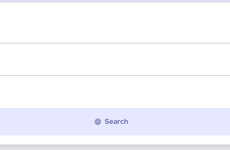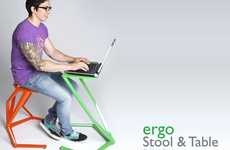
The 'Future World of Work' Infograph Shows Versatile Schedules
Jennifer Gosnell — June 1, 2012 — Business
References: visual.ly
Flexible work schedules, as displayed in the 'Future World of Work,' have taken on a more mainstream appeal. With over three in five workplaces opting for greater flexibility to acquire and keep fresh and awesome talents, flexibility may just be the next big workplace concept.
To increase productivity and creativity, 82% of European businesses report allowing for flexible schedules for their workers. With the benefits laid out, it makes sense to allow creative and innovative types the ability to set their own rules to get the best results. This equation is a win-win for everyone involved.
However, while it is an area of the workplace that is receiving greater consideration and growth, it has not truly reached its potential. Only 17% of businesses "provide the basic tools for flexible working," and only an approximate 52% actually "trust their fellow workers when working remotely," according to the chart. While the flexible schedule is building, it has a long way to come.
To increase productivity and creativity, 82% of European businesses report allowing for flexible schedules for their workers. With the benefits laid out, it makes sense to allow creative and innovative types the ability to set their own rules to get the best results. This equation is a win-win for everyone involved.
However, while it is an area of the workplace that is receiving greater consideration and growth, it has not truly reached its potential. Only 17% of businesses "provide the basic tools for flexible working," and only an approximate 52% actually "trust their fellow workers when working remotely," according to the chart. While the flexible schedule is building, it has a long way to come.
Trend Themes
1. Flexible Work Schedules - Greater flexibility in the workplace is becoming mainstream and presents opportunities for businesses in terms of increased productivity and talent retention.
2. Remote Work - Working remotely is gaining acceptance, but areas such as trust in colleagues and access to necessary tools need improvement.
3. Productivity & Creativity - Allowing workers to set their own schedules can increase productivity and creativity, requiring businesses to provide more flexibility.
Industry Implications
1. Human Resources - HR departments can embrace and lead the move towards greater workplace flexibility to attract the best talent and improve employee well-being and productivity.
2. Technology - Technology companies can innovate and develop tools that enable and facilitate remote work and collaboration and support more flexible work arrangements.
3. Real Estate - Real estate companies can drive disruptive change by transforming traditional office spaces into multi-functional environments that support flexible work arrangements.
3.4
Score
Popularity
Activity
Freshness























